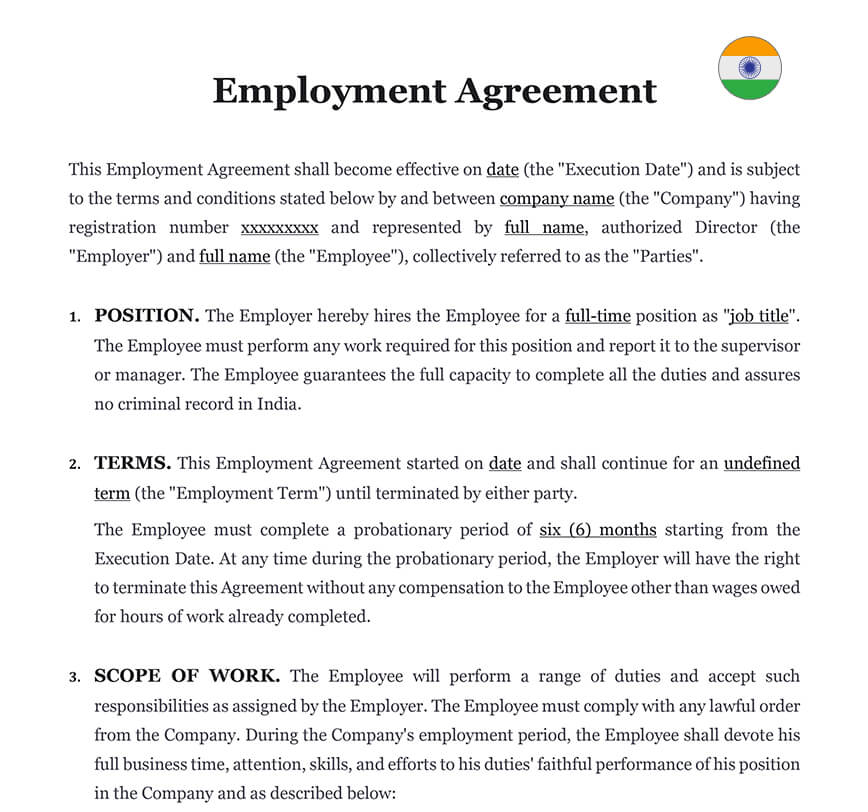
Download this Employment Contract to hire a new employee and define your requirements and the benefits you offer.

Word Document (.docx)

Ready to use legal template
Drafted by experienced lawyers
Compliant with Indian law
Ready to use legal template
Drafted by lawyers
Compliant with Indian law
An Employment Contract stipulates and specifies an employee’s employment status in the organization for which he works or will work. An employment contract is a contract usually entered into when a company hires a new employee. Protect your employment relationship with your employees with this Employment Contract drafted by lawyers. It can be used for a range of employment different types, including full-time, part-time, and fixed-term. As such, the employment contract sets out all the employment terms and conditions, including fees, wages and benefits, hours of work, confidentiality, vacation time, and various other key terms and conditions. If you want to make a job offer before hiring your future employee, you can download our Employment Application template
First and foremost, an employment contract in India exists when a person (the employee) undertakes to work,receiving a payslip, for the account, and under the orders and control of another person (the employer). The contract execution entails several obligations for both the employee and the employer. An employment contract in India is a binary agreement between an employer and an employee governing their rights, duties, and responsibilities. One of the main advantages of executing an employment contract is that it allows for employment detailed terms and conditions to be specified to ensure compliance with laws and industry best practices. It promotes a structured employer-employee relationship and sets out the expectations of the job.
Secondly, it is advisable to make employment contracts in India comprehensive and detailed to address employment key aspects and ensure compliance with applicable laws or an employer’s internal policies. However, it is also significant to remember that due to the unequal bargaining power between organizations and most of their employees, overly aggressive or unilateral clauses are likely to be struck down by the courts. For this reason, and given that employment in India is highly regulated, it is essential to carefully review the employment contract terms before signing it and to seek practical advice if in doubt.
Firstly, employment contracts in India between employer and employee are governed by the Indian Contract Act 1872.
Secondly, according to section 10 of the Indian Contract Act 1872, all agreements are made if they are entered into free of goods by the parties’ consent, which allows the contract to be valid in contract consideration. Section 14 of the Indian Contract Act 1872 defines free consent. Consent is said to be free when it has not been obtained under certain conduct:
| ➤ Coercion : Article 15 |
| ➤ Indue influence : Article 16 |
| ➤ Fraud: Article 17 |
| ➤ Misrepresentation: Article 18 |
| ➤ Mistake of fact: Article 20 |